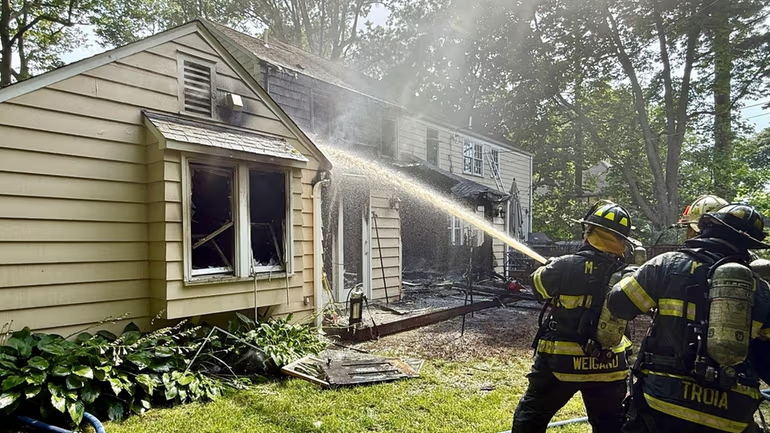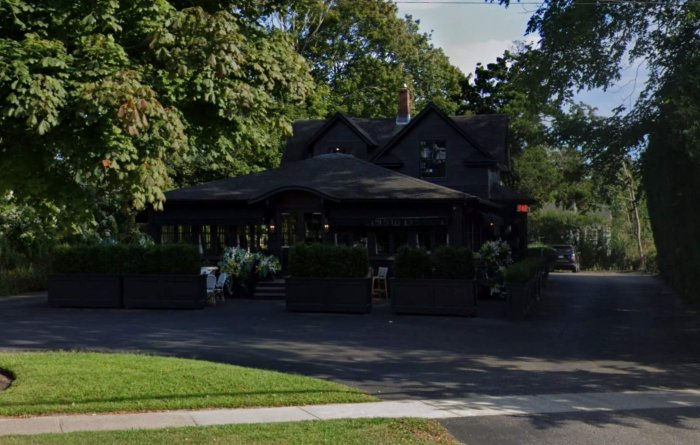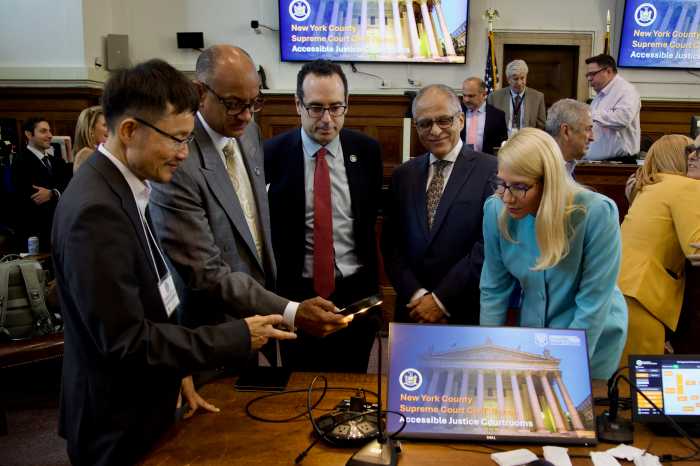 In a response to a request by North Hempstead, PSEG Long Island has been dealt a victory in its controversial power project.
In a response to a request by North Hempstead, PSEG Long Island has been dealt a victory in its controversial power project.
The agency that oversees the electric utility has declared that the project—which involves putting up 80-foot poles—should go forward. Many residents in Area residents had objected to the project, largely because of the towering poles.
The New York State Department of Public Service, after a survey that was requested by the Town of North Hempstead, said that based on its review of the project it is “needed to meet standard transmission…criteria.”
The department added: “To ensure reliability when power usage is highest, the project should be completed prior to the 2014 summer load period.”
“We tried to get the facts from PSEG at a meeting and the community was not satisfied with those answers, so we reached out the Department of Public Service and this is the information they are giving us,” Town of North Hempstead Supervisor Judi Bosworth told Manhasset Press. “What’s not forthcoming is certain information from PSEG, such as the cost of putting the wires underground.”
Councilwoman Dina De Giorgio did not return repeated calls for comment on the Department of Public Service’s assessment.
The news is a blow for those in Manhasset and Port that wanted the project halted, even as they watched PSEG move right ahead with it by lining Port Washington Boulevard with 80-foot poles that are considered by many an eyesore and take away from area’s character. The poles have to be of such a height to make sure they stand above trees, a PSEG spokesman has said. Meanwhile, the town has hired an engineer to see about burying the lines, an effort that would have to be paid for by residents, according to statements made by PSEG LI President David Daly.
“We appreciate the department’s quick response in their review,” which started in mid-April, said PSEG spokesman Jeffrey Weir. “Completing these transmission projects will ensure that our customers have the reliable electric service that they deserve this summer. We take very seriously the department’s recommendations on our public outreach process and will continue to engage the community on these major projects.”
Mindy Germain, executive director of Residents for a More Beautiful Port Washington, said, “Our position remains the same. We should have been consulted at the beginning of the process because if we had we would have looked at undergrounding the poles, the poles themselves and many other factors.”
Germain said her organization will continue moving forward with its resolution for “reliable service that coexists with a tree-lined Port Washington.”
The group is “talking to every level of government,” she said.
Bosworth, meanwhile did, however write a letter to Daly asking the utility to alert people who touch the newly-installed utility poles to wash their hands due to the “toxic nature” of the chemical used to treat the poles.
At issue is a wood preservative called pentachlorophenol, also known as penta, which is widely used on utility poles. Bosworth called it “a highly-toxic pesticide known to cause health problems” and said so far, PSEG officials have not taken steps to educate the public about the potential health risks associated with penta. “They should wash their hands,” Bosworth said. “People need to know that and I think PSEG has the responsibility to educate people about what they’re doing.”
PSEG does not feel the need to issue such a warning, Weir said. “Penta is approved for use in utility poles by the Environmental Protection Agency, “and is commonly used around the country.”
Given penta “is approved for use by the EPA, we do not believe sinage is warranted,” Weir said. “The health and safety of our communities is our top priority and we feel the use of penta on poles is not a hazard.
































